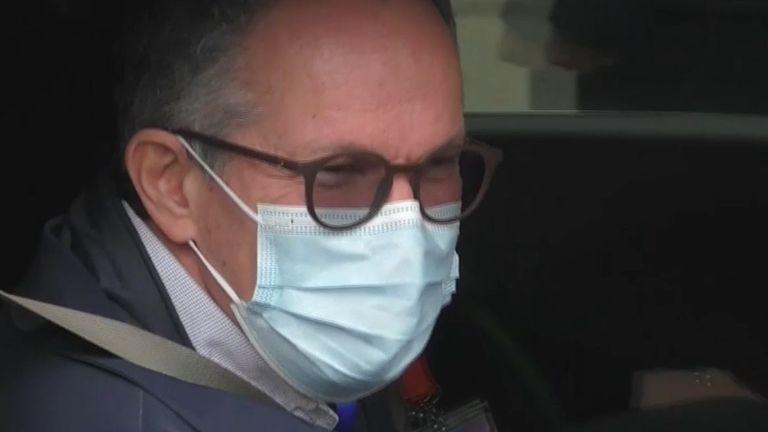Home » World News »
COVID-19: ‘All hypotheses remain on the table’ in search for source of virus, says WHO
The head of the World Health Organisation says “all hypotheses remain on the table” in the search for the origin of COVID-19.
Director-general Tedros Adhanom Ghebreyesus also said a WHO team looking for the source of the virus had encountered problems accessing raw data, and called for further studies because the assessment so far has not been extensive enough.
“We have not yet found the source of the virus, and we must continue to follow the science and leave no stone unturned as we do,” he added.
COVID live news – lockdown rules warning for warm weather over next two days
Earlier, Sky News revealed that experts believe the most likely origin of COVID-19 is transmission from a bat to humans via an unidentified intermediate animal species.
Scientists have concluded that a leak from a laboratory is the least likely hypothesis, after visiting several facilities.
Dr Tedros said the “role of animal markets is still unclear”.
But he added that the WHO team had confirmed there was “widespread contamination with SARS-CoV-2 in the Huanan market in Wuhan”.
The source of that contamination could not be determined, however.
He said further research may include a “full analysis of the trade in animals and products in markets across Wuhan, particularly those linked to early human cases”.
Farmers, suppliers and their contacts need to be interviewed, he added, echoing a request from his team, which also addressed the possibility that the virus was introduced to humans through the food chain.
A team of scientists from the UK, Australia, China, Denmark, Germany, Japan, Kenya, Netherlands, Qatar, Russia, the US and Vietnam travelled to China in January, working with experts there for four weeks.
The results published today are described as “initial studies”.
Looking at available data, the report suggests there was unrecognised transmission in December 2019, and possibly earlier.
It adds that the first detected case began to show symptoms on 8 December 2019.
But to go further, the team needs “full access to data including biological samples from at least September 2019”, Dr Tedros said.
He said the report was a “very important beginning” but not the end.
“Finding the origin of a virus takes time and we owe it to the world to find the source so we can collectively take steps to reduce the risk of this happening again,” he added.
“No single research trip can provide all the answers.
“It is clear that we need more research across a range of areas, which will entail further field visits.”
Source: Read Full Article




